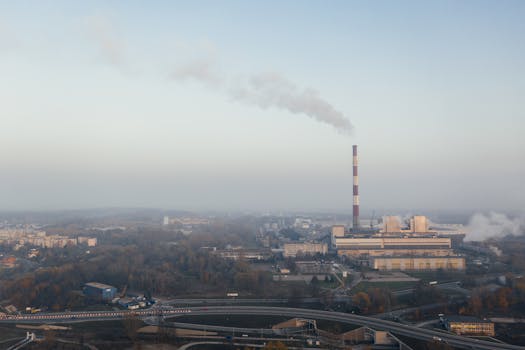+17162654855
+17162654855
NRP Publication News serves as an authoritative platform for delivering the latest industry updates, research insights, and significant developments across various sectors. Our news articles provide a comprehensive view of market trends, key findings, and groundbreaking initiatives, ensuring businesses and professionals stay ahead in a competitive landscape.
The News section on NRP Publication News highlights major industry events such as product launches, market expansions, mergers and acquisitions, financial reports, and strategic collaborations. This dedicated space allows businesses to gain valuable insights into evolving market dynamics, empowering them to make informed decisions.
At NRP Publication News, we cover a diverse range of industries, including Healthcare, Automotive, Utilities, Materials, Chemicals, Energy, Telecommunications, Technology, Financials, and Consumer Goods. Our mission is to ensure that professionals across these sectors have access to high-quality, data-driven news that shapes their industry’s future.
By featuring key industry updates and expert insights, NRP Publication News enhances brand visibility, credibility, and engagement for businesses worldwide. Whether it's the latest technological breakthrough or emerging market opportunities, our platform serves as a bridge between industry leaders, stakeholders, and decision-makers.
Stay informed with NRP Publication News – your trusted source for impactful industry news.
Energy

**
India's Ministry of Environment, Forest and Climate Change (MoEFCC) has recently announced a significant easing of sulfur dioxide (SO2) emission norms for thermal power plants, sparking considerable debate about its impact on the environment and public health. This move, which exempts a large number of coal-fired power plants from stricter emission standards, has raised concerns among environmental activists and experts who highlight the detrimental effects of SO2 pollution on air quality and human health. This article delves into the details of the new regulations, their potential consequences, and the ongoing controversy surrounding them.
The new regulations, implemented under the Environment (Protection) Act, 1986, modify the existing emission standards for SO2 from thermal power plants. The key change involves a more lenient approach to enforcing stricter norms on older plants, effectively granting them a longer timeframe – or in some cases, complete exemption – to comply with the previously mandated limits. This has led to accusations of the government prioritizing the interests of the coal industry over the health and well-being of citizens.
The relaxation of SO2 emission norms is expected to have significant repercussions for India's already alarming air pollution levels. SO2 is a major air pollutant that contributes to acid rain, respiratory illnesses, and other health problems. The increased SO2 emissions from coal plants could:
The coal industry has welcomed the government's decision, arguing that implementing stricter emission norms on older plants would be economically unfeasible and could lead to power shortages. They claim that upgrading these plants to meet the stricter standards would require substantial investment and would hinder India's economic growth. However, critics argue that this argument neglects the long-term costs associated with poor air quality and its impact on public health.
The decision has faced strong opposition from environmental groups and public health advocates. They argue that the government's priority should be on improving air quality and protecting public health, not prioritizing the short-term economic interests of the coal industry. They have called for a more stringent approach to SO2 emission control, including faster phasing out of older, inefficient coal plants and accelerating the transition to renewable energy sources.
The debate surrounding the relaxed SO2 emission norms highlights the complex challenge of balancing economic development with environmental sustainability. While the government aims to ensure energy security and economic growth, it must also address the urgent need to improve air quality and protect public health.
Moving forward, a more comprehensive approach is needed, including:
The easing of SO2 emission norms is a significant development with far-reaching consequences. Only time will tell whether this decision will ultimately prove beneficial or detrimental to India's environment and public health. The ongoing debate underscores the critical need for a balanced approach that prioritizes both economic progress and environmental protection. This requires a long-term vision that encompasses cleaner energy sources, strict regulations, and transparent monitoring to ensure a healthier and more sustainable future for India.